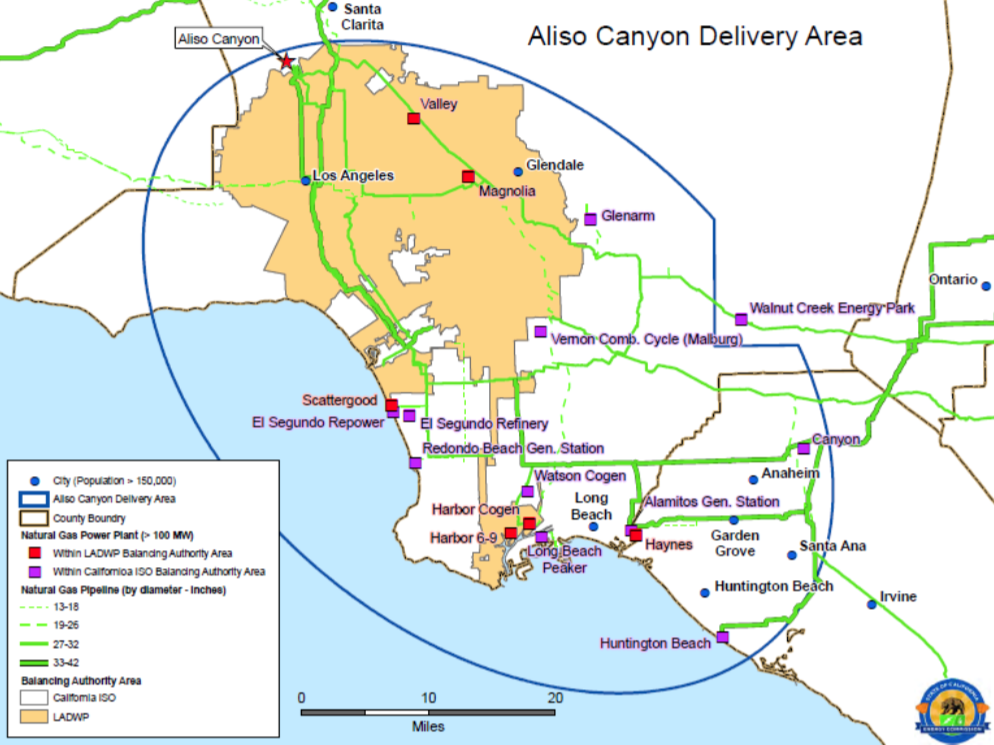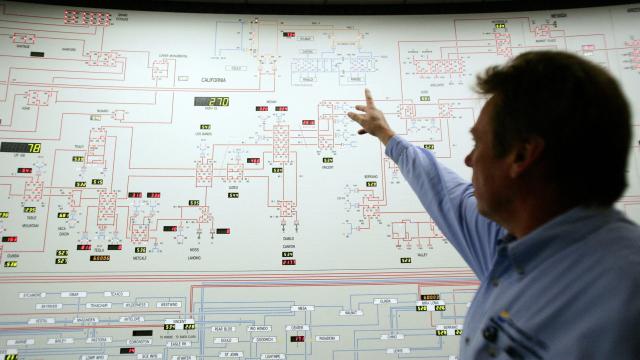Though the catastrophic natural gas leak outside of Los Angeles has been contained, the repercussions are still far from over, according to a new report. For weeks leaders of the region’s utility companies have been warning customers about potential disruptions to their energy service. Today, they’re telling Los Angeles to brace for blackouts this summer (winter in the southern hemisphere).
A coalition of agencies including the California Energy Commission, California Public Utilities Commission, California Independent System Operator and the Los Angeles Department of Water and Power just released a report on how the Aliso Canyon leak is going to impact the energy demands of the region. The outlook is not good:
This technical assessment finds that if no gas can be withdrawn from Aliso Canyon during the coming summer months, a significant risk exists of natural gas curtailments during up to 16 days this summer. These curtailments could interrupt service and affect millions of electric customers during as many as 14 summer days.
How could the closing of one natural gas facility so severely impact the entire region? There are 17 natural gas facilities serving the area, which aren’t all used at the same time. On the hottest summer days, the city needs to quickly fire up some of these auxiliary plants to help keep up with the increased energy demand stemming from millions of air conditioners running full throttle. Aliso Canyon was one of those facilities that could quickly be brought online during peak hours. In previous summers, Aliso Canyon was used anywhere from 12 to 18 days each summer month (including October, because LA’s “summer” lasts well into November), making it pretty much a necessity. So without the facility as backup, blackouts on those highest-demand days are almost inevitable.

The impacted delivery area from the Aliso Canyon facility. Image: Energy Commission Staff
A handful of rolling blackouts are already reality for America’s severely overtaxed power grid, especially in warm months. But 14 days of unreliable energy could be potentially economically devastating. The only way to avoid this happening would be to reduce overall energy demand. Which is definitely possible, but is the city really going to be able to get its residents to save energy?
The report goes on to list 18 recommendations for ways that Los Angeles can potentially avert the impending energy crisis. This prompted a statement from LA Mayor Eric Garcetti, who said the city is already planning a long-term move away from a reliance on natural gas, but will make a series of short-term energy-saving adjustments. “We will announce rebates and other programs in the coming weeks to help residents and businesses save energy and money — while improving air quality, creating green jobs and reducing greenhouse gas emissions,” he said. “I will direct all City facilities to improve energy efficiency and decrease power use, especially at times of high demand.”
Another major concern on the horizon is that as more natural gas storage facilities are inspected in the wake of this disaster, more plants will be forced to be taken offline. This is, of course, the way that Southern California should be headed in the future — replacing fossil fuels and natural gas with renewable energy sources — but without those new energy sources in place, taking any facilities away will continue to strain the grid.
It might be a good time for residents of LA to get those solar panels installed on their homes.
[Aliso Canyon Action Plan to Preserve Gas and Electric Reliability for the Los Angeles Basin]
Top: The methane gas leak will strain LA’s power grid. AP Photo/Kevork Djansezian
